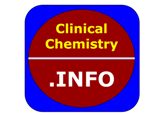Clin Chem. 2025 Oct 13:hvaf114. doi: 10.1093/clinchem/hvaf114. Online ahead of print.
ABSTRACT
BACKGROUND: The past 2 decades have seen rapid advances in the development of the concept of personalized nutrition (PN) interventions, and in its application. PN has evolved from attempts to understand the well-recognized interindividual variability in response to dietary intervention that have been facilitated by developments in -omics technologies, systems thinking, and behavioral psychology. The PN concept is predicated on the idea that it is possible to collect, and to use, specific information about individuals, including clinical chemistry, as an evidence base for more effective dietary advice, products, or services.
CONTENT: This paper provides a narrative review of recent developments in the design and testing of PN interventions, including use of clinical chemistry measurements. The term PN is used to include all approaches that employ specific information about individuals to tailor interventions that are designed to be more relevant to, and effective for, that individual. In addition, the paper considers the potential for PN approaches to contribute to better public health.
SUMMARY: There is good evidence that PN interventions can improve eating behavior with potential to improve health but much remains to be done to make PN interventions more effective, to reduce the burden on participants, and to enable cost-effective and equitable scale-up before they can make a significant contribution to better public health.
PMID:41081639 | DOI:10.1093/clinchem/hvaf114
